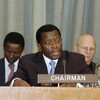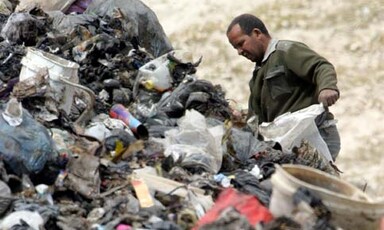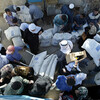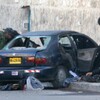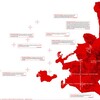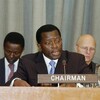
Cairo meeting addresses economic, humanitarian crisis in Palestinian Territory
26 April 2006
In his keynote address to the United Nations Seminar of Assistance to the Palestinian People this afternoon, Member of Palestinian Legislative Council Nabil Sha’ath said the new cabinet was willing to accept financial oversights or to have money transferred through President Abbas, but it could not accept the attempt to bypass the Palestinian Authority. This afternoon’s session, part of a two-day meeting sponsored by the Committee on the Exercise of the Inalienable Rights of the Palestinian People, heard presentations by experts on the scope of the economic and humanitarian crisis in the Occupied Palestinian Territory. Read more about Cairo meeting addresses economic, humanitarian crisis in Palestinian Territory
